Student Blog
What are OS/OT?
Everything I know about life, I learned from OT ⟩
April 20, 2022, by Global Initiatives Team
Getting Involved International What are OS/OT?
By Josh Digao, Post-Professional Master’s Student
Editor Alison Chang and Vanessa ElShamy
Entry-Level Professional Master’s students
I am from a country that still has, at its very core, patriarchal values. Not to say that the Philippines is a backwards country, but I and a lot of the pre-social media generation Filipinos were raised to believe that men were supposed to act a certain way. When you are raised in such an environment, it becomes what you believe to be right and wrong. Growing up, I felt trapped in a box that dictated how I should think, act, and speak in order to be accepted as a tunay na lalaki (real man). “Don’t care too much”, “Don’t show your emotions”, “Never let others tell you you’re wrong.” In my mind, being this arrogant, unfeeling, uncaring person was what being a man meant. But I struggled with that belief; I did not want to align myself with that archaic idea of a “real man.” It was not until I took up OT that I learned I did not have to.
It was in OT school, the pontifical and royal University of Santo Tomas, that I met some of the strongest and most wonderful people who helped me unlearn my ideas of toxic masculinity and made me the person I am today. The first of which was a professor that tried her best to instill in her students the value of being kind. A Mabuting OT (kind OT) - that is what she wanted us to be. For her, it did not matter as much that you knew all the therapeutic techniques in the book, or that you could name every muscle, bone, or nerve in the human body. What mattered was that when faced with a client, you would treat them with the utmost respect and compassion, regardless of status, age, or ability. “It’s better to be the kindest therapist than the smartest therapist” is what she would always tell us. It was not until I encountered my first few clients that I realized just how right she was. Clients, and even their family members, responded best to therapy when they felt that their autonomy and personhood was respected and cared for.
The second lesson was that of empathy. This one I attribute to the remarkable group of humans I call my friends. I have been lucky enough to be around people who are deeply loving, sensitive, and emotionally mature. Through them, I learned that in order to truly understand the emotions of others, we need to be attuned to our own. However, before I could learn to comprehend my emotions, I had to allow myself to first feel them. This realization would come to not only help me in my personal growth, but in my professional growth as well. In clinics and hospitals, I would often encounter people at their lowest points. During those moments, I realized more than ever the importance of being empathetic to other people’s struggles.
The last lesson came from my clinical instructors during my internship. Being new to the field, I was largely unconfident in my skills and abilities. I had no experience, and on top of that, the knowledge I was heavily relying on was purely theoretical. But when my clinical instructors (all of whom were amazing OTs) gave me feedback, they would focus on what it was that I did well. They recognized my strengths first, and that gave me the foundation that I needed to develop my own professional identity. I learned not only to accept the person I was, flaws and all, but to also be confident in what I bring to the table.
I believe that OTs are some of the most incredible people out there. The kindness and wisdom that I have seen from every single OT I have met continues to amaze me. Though I consider myself to be a deeply flawed person, they have taught me that the person I am is enough. I have learned that the only way to be a “real man” is to be true to yourself. As I am currently in the process of unlearning outdated values from my childhood, I know that perfection is not my goal; kindness, understanding, and acceptance are. If we extend these values toward ourselves, we will realize that at the end of the day what really matters is we are all trying our best - and we can already be proud of that.
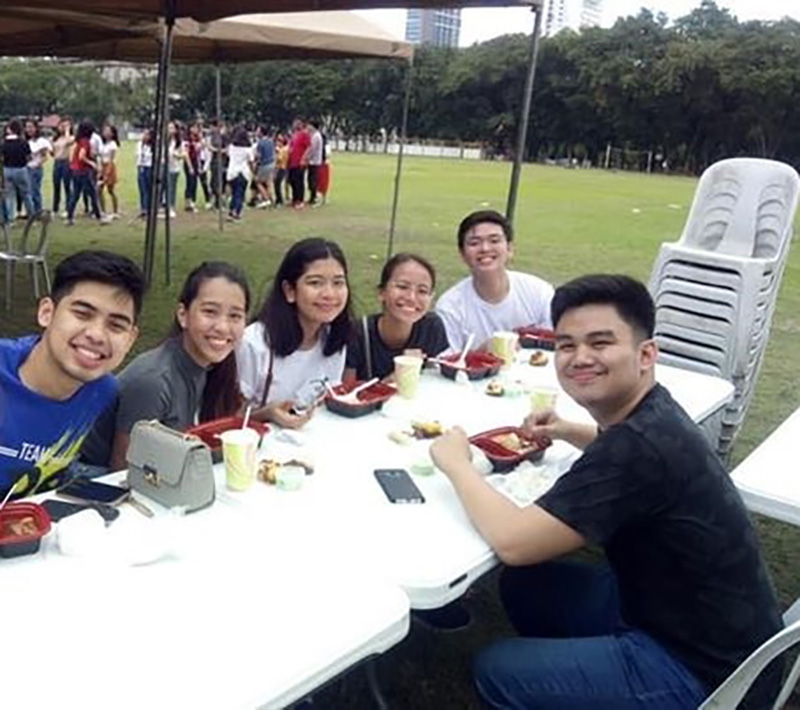
Josh and his friends back at UST
⋯
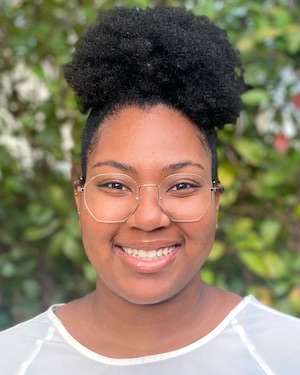
A Day In My Life ⟩
February 8, 2022, by Kayla
School/Life Balance What are OS/OT?
My day starts bright and early. I wake up at 6:30AM, throw on my scrubs, take out my dog, Buffy, throw on my winter coat, scarf, and gloves (it’s the middle of Chicago winter) and head out the door around 6:50AM! I am not a morning person, so I have this process down to a science!
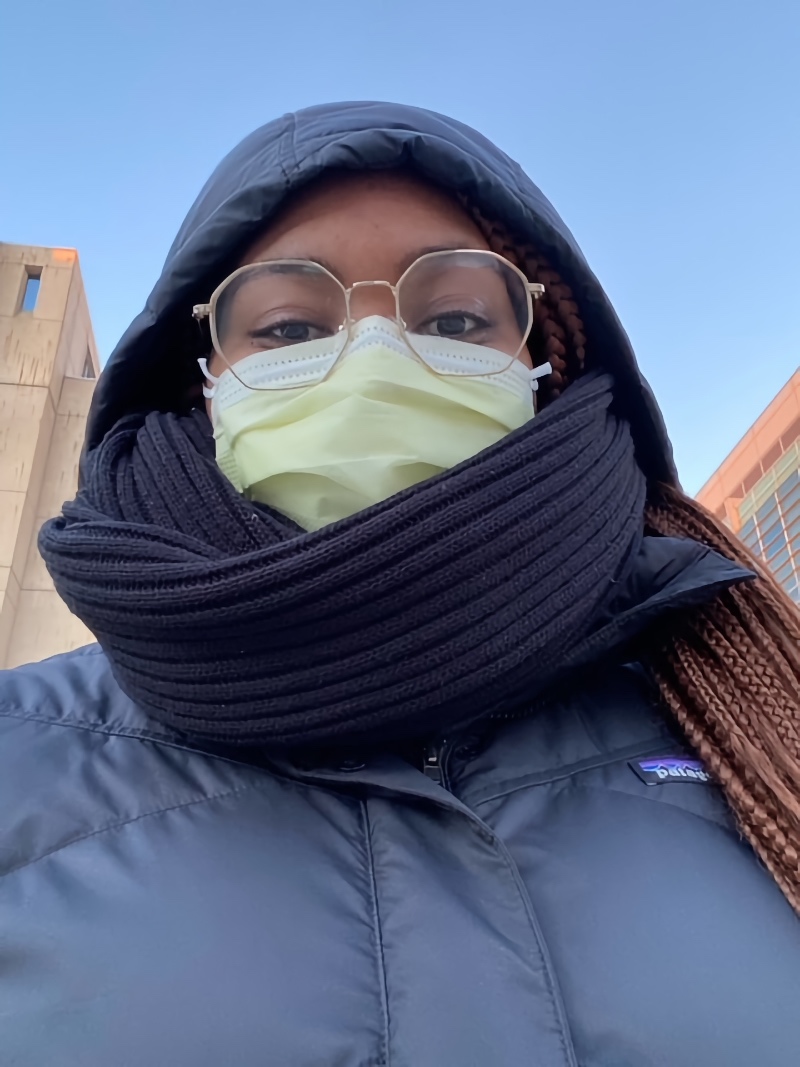
Bundled up to face the cold!
After my commute, parking, and making my way into the hospital I sit down to chart review my patients at about 7:40AM. I decide which patients I want to see for the day, look for new consults, and get well-versed on what brought everyone into the hospital! (This part is one of my favorites as an acute care therapist, learning about all of the different diagnoses and procedures is so interesting!)
At 8AM I meet with my residency site preceptor to finalize my caseload, ask questions, and set up times to complete mentorship sessions throughout the day. At 8:15 we have our OT department huddle (via Zoom as to be covid friendly) and then get started with our day!
Between 8:20 and 9:00AM I create a general schedule to follow based on priority and reach out to my PT partners to schedule any co-treats for the day.
At 9AM . . . My absolute favorite part begins, seeing my patients! I typically see patients from 9-12PM and then sit down for lunch and to complete some notes from my morning sessions until 1-1:30 PM! (Sometimes the other therapists/fieldwork students host in-services during lunch, so it’s an opportunity to learn while I eat!)
From 1:30-3PM I see my afternoon patients (admittedly, it is hard to get back into the swing of the fast-paced nature of acute care with a full tummy after lunch). At 3 o’clock I meet with my preceptor to go over my patients from the day and plan for the next day, ask any questions that came up during my treatment, and complete my documentation.
I typically get home between 5-6PM (after work traffic is a monster). When I get home I take a second to breathe and reflect on the day before jumping into my tasks for the evenings. Each evening looks a little different based on the day. Some days I have 2-3 hours of class, a couple of meetings, or 1-2 hours of homework to stay current and on track with OTD course curriculum. I typically complete work until about 9PM and then wind down for the day! And of course, an hour or so of tiktok is ~usually~ in the cards before turning in around 11PM.
On days that I don’t have work, class, or meetings, I love to Facetime with my friends and family back home, go on a good therapeutic trip to Target, or try new restaurants in my neighborhood! While my days are long and sometimes very tiring, they are filled with everything I expected from an acute care residency.
Pro tip: Find a current resident working in a similar site/practice context as you and pick their brain about their daily schedule/workflow. It’s so SO helpful in beginning to conceptualize what your upcoming year will look like and help you plan and prepare accordingly!
⋯
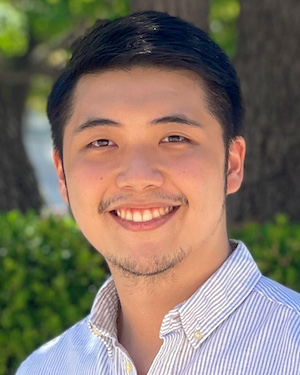
TwentyTwenty-ONE: The Ambassador Year Round-Up ⟩
December 31, 2021, by Marvyn
Diversity Life Hacks What are OS/OT?
Happy DAY ONE (and sadly last) day of Blog-mas! It has been such a blast reading everyone’s blog entries over the past 2 weeks. I hope that this Blog-mas helped you in any shape or form during the holidays! But if you come across this blog at a random point in time in the future, welcome!
For the last blog post of 2021, I decided to round up all the current ambassadors to create this collaboration blog! Call it “The Avengers” of blogs if you will. Crossover blog of the year! While I don’t get carried away, I asked each ambassador the following questions: “What have you learned in life from 2021?” and “What is your TOP GOAL for 2022?” Let’s see everyone’s responses!
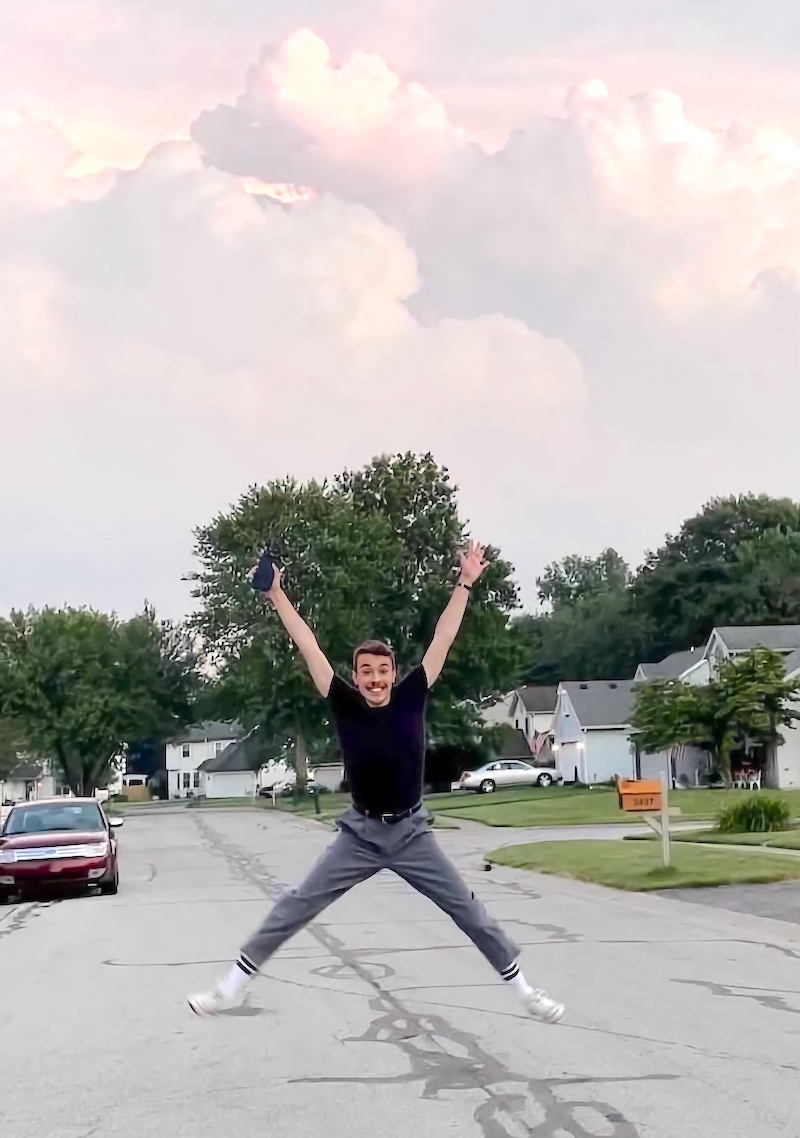
SETH: “As I look back on 2021 what I’ve learned is that no matter how much you grow and transplant yourself, you always have your roots. Up until this past year, I couldn’t wait to get out of my hometown and escape to the big LA city, but after a couple of months of quarantine, I really began to discover a newfound and indescribable appreciation for the place and people that raised me. When we slowly began to transition back to in-person classes I realized how much I missed the peace and quiet, the dinners with my family, and the pace of life. After five years, I felt like, for the first time, I had feet firmly planted in both places. At a point in my life where I am figuring out the next steps, it is nice to know that I have it in me to be adaptable, but also that I have a place that fits the stereotype of a home is where the heart is.
As I look forward to 2022 my top goal is to spend more time doing the things that mean the most to me and to find more small moments of joy throughout my day. It is easy to fall into a slump or get busy or to focus on what might not be going as planned, but being able to feel those things, quickly shift perspective, and take action is a philosophy that I’d like to more seriously put into practice. I always come around eventually, but by being more mindful, more present, and more intentional I believe I could enrich my 2022 experience. Big things are on the horizon and I want to give them, and myself, the love and attention they deserve! Here’s to the new year and new habits, roles, and routines!”

KAYLA: “While this year has taught me a lot, more than anything I learned how to enjoy the journey. When faced with difficult situations I am always anticipating something going wrong, and pre-stressing about fixing problems. This year I really tried to change my thinking from “what if it goes wrong” to embrace the ideology of “what if it goes right”. This subtle change has helped me be more present for the huge changes happening in my life, allowed me to be more mindful, and have the capacity to enjoy my experiences in the moment rather than having to reflect on them later down the line.
During this next year I want to be really intentional with what I do and how I spend my time. I am a self-proclaimed “sleepy girl” and will choose sleep over anything 9 times out of 10. In 2022, I want to take advantage of more opportunities to step outside of my comfort zone. I want to go new places, try new things, and have new experiences all 2022!”
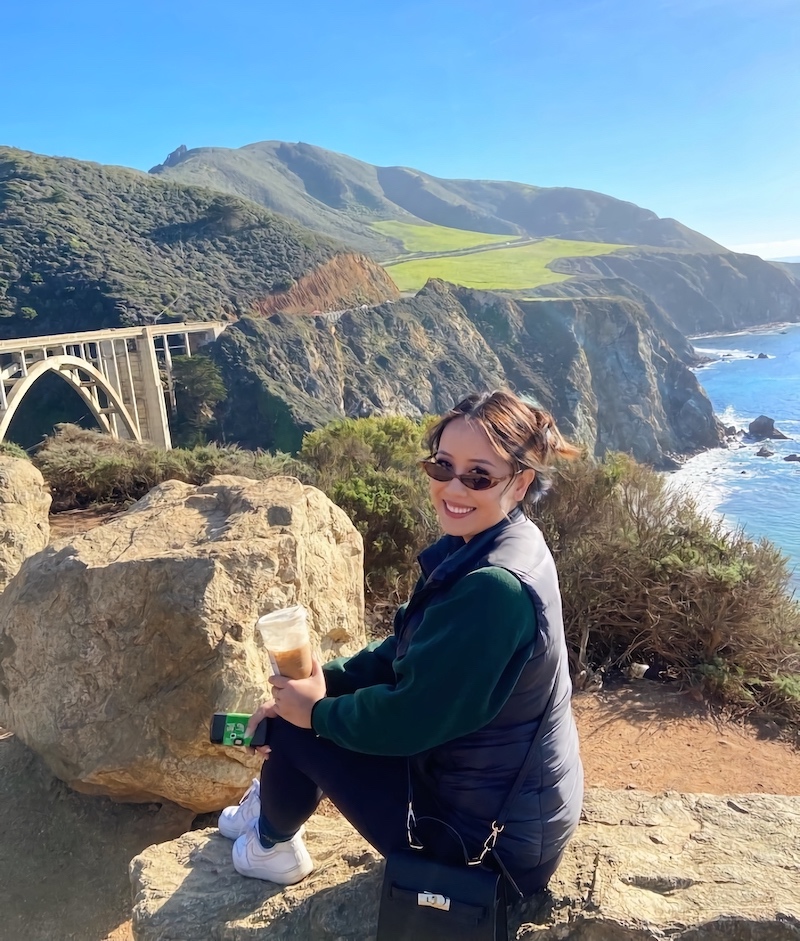
TERESA: “Looking back, I accomplished each goal I set for myself in 2021, which is not something I’ve been able to say in a while. I think this was due in part to my primary goal for the year, which was to accept that so many things in life are out of my control and to learn to be okay with that. However, I can be in control of the way I act and react to situations. With this approach, it allowed me to tackle goals which were internally motivated but contingent on an external source and completely out of my control.
In 2022, my only resolution is to show more self-compassion and for some reason, that seems more daunting a task than prior years. I am my own worst critic because I always thought if you’re self-aware of every single one of your flaws, then no one else can use them against you . . . right? Except in 2021, I realized that I tend to use them against myself. As a student and future OT, I’m always reminding myself that I can’t pour from an empty cup but I also need to remember that outside of those roles, I am also human. As a human, I’m inevitably going to mess up but despite these mistakes, the person I need forgiveness and validation from most is myself. Also, the members of BTS said to “Love Yourself” so, in 2022, I will be. I’m going to accept love from the world, from those I love, from myself, and return that love tenfold.”

SILVIA: There’s more to life than ___.
For a long time, my life has revolved around school and family, two very important things to me. From wanting to perform at the top of my class to trying to mediate family tensions, these two aspects of my life have also brought the most stress and anxiety. This year, I have found myself sitting in the ugly and telling myself, “There has got to be more to life than this.” “This” stands for the feelings, the worries, the distress — everything that is making me unhappy at that given moment. This reminder has allowed me to sit, feel, and embrace my emotions . . . and then let them go so that I too can keep going.
Top Goal for 2022: Learn to Adult.
Some may say that I entered adulthood a couple years ago, but that is fake news. Truth is, I am turning 26 this year (next month actually) and that means going through the rite of passage that marks my transition into adulthood: getting kicked off my parents’ health insurance. In light of this, I have made a list of “important things I must learn to do as an adult.”
1. Learn to budget. Shoutout to Kimberly Kho for sharing some of her tips and tricks with me—the Mint App will be my best friend in 2022.
2. Learn to do my own taxes. I’ve heard TurboTax can help me get the job done, but I have a feeling that my father will sit me down for a 3-hour explanation instead.
3. Figure out my health insurance situation. Bless the student health insurance, for now. After graduation, I have a feeling I will be listening to another 3-hour explanation from my father on how to do this.”
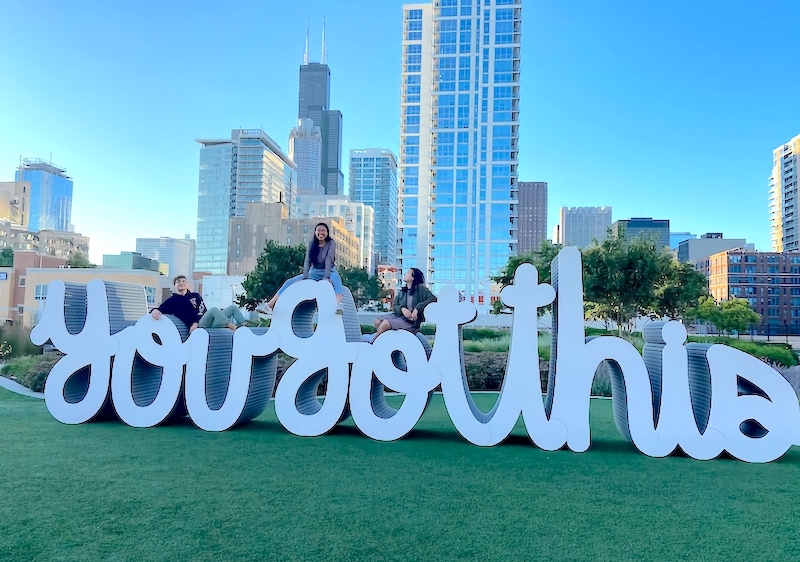
ALYSSA: “In the spirit of blogmas lists, here’s my list of what I learned in 2021: (1) I’m a podcast person now. (2) There’s more to life than the coasts! I’ve flown between NJ and CA so many times and this summer I had the opportunity to explore in between via road trip from Chicago back to LA. 10/10 recommend. (3) Living with your best friends is the best way to live.
My goal for 2022 is to enjoy exercising at home. I felt like I missed my window to get #fit with at-home workouts in 2020 but who’s to say where the pandemic is headed in 2022, so . . . time to sweat!”
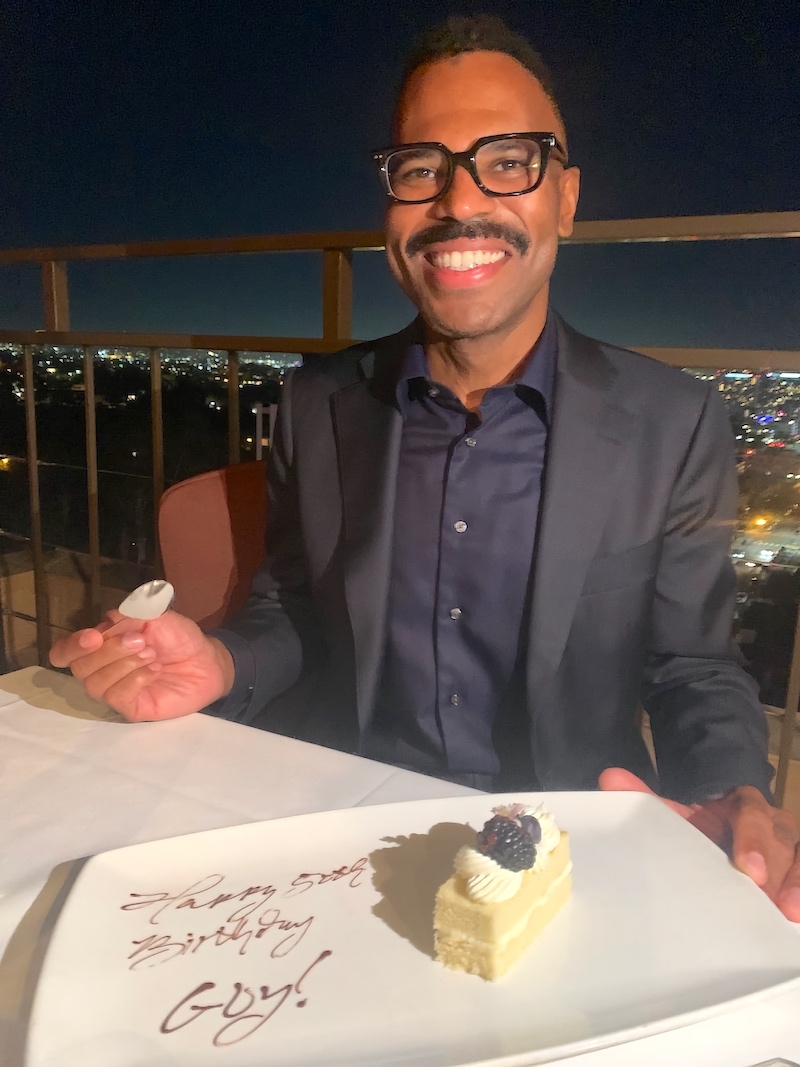
GUY: “This past year I learned to cherish those close relationships I hold dear in my life. Life is short! My top goal for 2022 is to continue to spend more time with my lifelong friends celebrating and enjoying life like I did on my birthday this past year.”
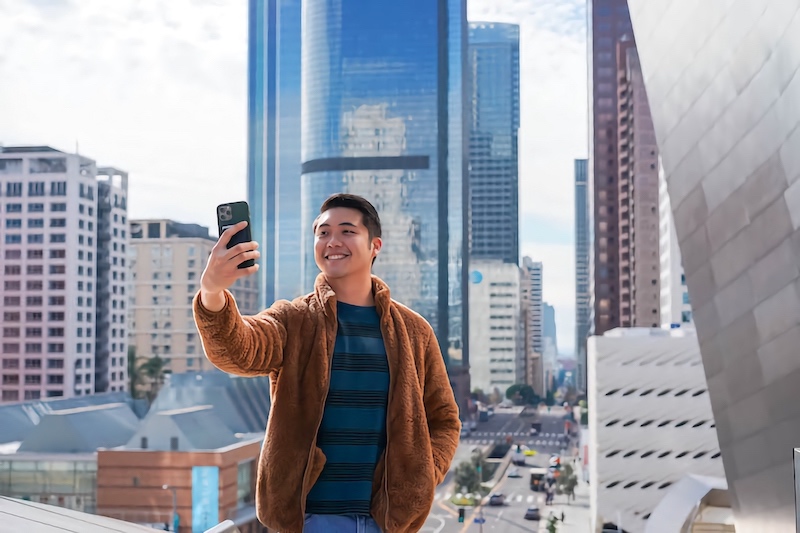
MARVYN: “And as for me, 2021 has been a roller coaster of a ride. Looking back, I realized that I have achieved a lot of the goals I set for myself. I was able to pause my life as a practicing occupational therapist back at home to pursue my Master’s degree here at USC. I was able to step out of the box (mainly because of quarantine and lockdowns back in 2020), and I pushed the boundaries of my comfort zones coming here as an international student. I have become more independent than I ever was, and I became more confident in myself and my capabilities as a person and as a professional. 2021 has been such a teacher for me, in such a way that even though you are miles away from your family, I am in such a great, and importantly very safe, environment to achieve my goals in life. I am overwhelmed with pride and humility at the same time because I didn’t expect to be who I have become today. If “2020 Marvyn” saw me today as he starts his 2021, he would be in disbelief at the sheer amount of growth he has had over one year.
2022 is a promising, yet daunting year for my life. I am slated to graduate with my Master’s degree this year and that my professional life will be catapulted swiftly into the real world. If there’s anything I want to look back on by the end of 2022, it is that I want to become a licensed and practicing occupational therapist here in the USA. No matter what hurdles may come my way, I do hope Destiny and Fate agree with my goals and guide me through the right paths. I am so excited at the same time nervous for what’s to come, but I hope 2022 would be my best friend much like how 2021 was to me.
SIDENOTE: I want to take more pictures around LA too (and that’s just a side quest I’m also looking forward to doing very soon)!”
And that’s a wrap! Thank you all for a wonderful 2021 and for reading our fun series of blogs over the past few days. New Years is tomorrow, and we here at the student ambassador team are so excited to greet 2022 with you.
⋯
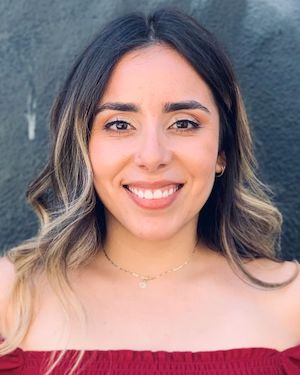
MA-2, Year 2 ⟩
December 30, 2021, by Silvia
Classes Living in LA What are OS/OT?
2022 is around the corner and so is the end of my time as a student in the Entry-level Master’s program. It is bittersweet to think that just in a couple of months I will be graduating with a master’s degree in occupational therapy and on my way to my second level-2 fieldwork, before prepping for/taking the NBCOT exam and hopefully becoming an *official* OT.
— Woah. Woah. Woah —
Let’s take it back because that still feels very much unreal. Time truly flies by when you’re having fun . . . and when you’re not, tbh. But anyway, I would like this blog to focus on the now, and that is entering my second semester of year 2 of grad school. Like many of us often do with a new year though, I first want to reflect on what last semester was like before sharing what I hope for and look forward to in the upcoming one.
Year 2, Semester 1 (Fall 2021)
Last semester tried me, and it almost won. But it didn’t.
You know when you start a new routine and things feel off, but you tell yourself you just have to get into the swing of things, and eventually, you’ll get your mojo back? Well, that’s exactly what the entire Fall 2021 semester felt like, except I never got into the swing of things, nor did I get my mojo back. Was it the classes or the switch to being fully in-person? Idk, but we pulled through and in the process realizations and reevaluations were made. Here are the 2 that stand out to me:
- A marker of last semester was applying to the OTD program. This was an interesting time because as I was completing the application, which meant staying one more year for another degree, I was complaining about how I had no more school left in me. So, why was I doing that to myself? I came to the realization that I was on “student autopilot” mode and needed to turn it off to figure out what it was that I truly wanted. I am not sure that I completely know yet, but I realize that I don’t have to keep going to prove myself to anyone (including myself).
- Priorities — I spent a lot of time reevaluating these. Before even starting this program, I remember telling my boyfriend that when I’m in school, school is my #1 priority and everything else comes after, but that is definitely not true today. Understanding the importance of meaningful occupations and their impact on my mental health has helped me shift my priorities around. Last semester I spent less time worrying about school and more time loving on my family, spending quality time with friends, and focusing on my physical health.
Though I felt lost most of last semester, I think I actually found myself.
Year 2, Semester 2 (Spring 2022)
We’re ringing in the new year and new semester with a remote start. Back to Zoom we go, but I am not mad about it. Fingers crossed that it is only temporary! I have a good feeling about the Spring 2022 semester, and I am looking forward to 2 things in particular: electives and spending more time with friends before we part our ways after graduation.
- Did you know that the electives are graded CREDIT/NO CREDIT? I didn’t. But now that I do, it is a game-changer. The semester hasn’t even started, but I am already not stressed. *Knock on wood and fingers crossed this stays the same* Also, this semester we are no longer taking classes as cohorts, which means I get to mingle with the rest of our class :’). I am most excited about the pediatric-based courses that I will be taking because that is the area of practice that I am interested in. I’ll be taking OT 567 (Contemporary Issues: Occupational Therapy in Early Intervention), OT 575 (Dysphasia Across the Lifespan: Pediatrics Through Geriatrics), and OT 578 (Therapeutic Communication: Facilitating Change in Clients) — I will let you all know how it goes!
- One of my meaningful occupations is spending time with friends. From study dates to Friendsgiving dinners, I cherish all the memories made. This upcoming semester it is important for me to spend quality time with friends because before we know it, we will be taking different paths — we’ll be at different fieldwork sites, some will be going onto the doctoral program, others will be moving back home, etc. The point is, I want to make the most of next semester with my friends and future colleagues. ❤️
And like that, in the blink of an eye, two years will have flown by.
⋯

6 Lessons from My First Semester as an OTD Resident ⟩
December 23, 2021, by Kayla
Beginnings and Endings Life Hacks What are OS/OT?
The first semester of my OTD year has come to an end, here are some lessons that it taught me. Let’s get right into it!
1. This is Not The Master’s Program Anymore
As a student in the MA-II program, I became so accustomed to (and honestly, reliant on) the structure; class four days a week and one day for fieldwork. It was so consistent that when I began the OTD and my schedule became so much more flexible it was a bit of a shock. In the OTD program, you have class 1 day a week and all other time is spent engaged at your residency site. Because I spent the majority of my time providing direct patient care, I found myself having to switch my brain from “clinical to classroom” in order to be in the right headspace for group discussions and class participation. I really had to adjust to the new flow of things . . . adapt to my new roles and routines, if you will.
2. You Won’t Feel Overwhelmed Forever
Beginning a new program, moving halfway across the country, figuring out my role as the first resident at my site, studying for boards, and tending to my mental and physical health . . . it was a lot. I remember attending a residency seminar entitled, “What Have I Gotten Myself Into”, where residents currently in their final semester of the program reflected on their first semester and assured us that even though it was going to get hectic, that we would make it through. On the other side of my first semester, about three things I am absolutely sure. First, I was 100% overwhelmed during the first few months of the semester. Second, I was not alone in feeling this way. Third, that feeling does not last forever.
For me, what helped get through the days where it felt like I had too much on my plate was to remember my why. Thinking about why I began on this journey in the first place, understanding how my current responsibilities fit into the bigger picture, and most importantly, taking a deep breath and giving my best effort.
3. Mistakes Are Going to Happen
I am no stranger to making mistakes, but over the course of this semester as I was beginning to come into my role as a new professional I, expectedly, made more than I was used to. I had to learn how to reframe my mistakes in a way that allows for growth rather than feelings of guilt and how to turn thoughts of “Why did I do that?” into, “How can I do better?” Mistakes are a part of the process of learning and I had to learn to be thankful for the new perspective I gained along the way, after all . . . perspective is everything!
4. How To Navigate The “In Between”
As an OTD resident although you are a registered and licensed therapist, you still occupy the role of a student and mentee. This semester taught me how to embrace the duality of the unique position that we as residents are in. I was faced with having to define my role as an OTD resident, especially because my site has never had one before, and learn to be confident and accepting of changes as I encountered them. Biggest takeaway: be confident in the path you’re walking and don’t be afraid to ask for help when you’re unsure of your next step!
5. No Two Residencies Are The Same
This lesson is rather short, sweet, and to the point. Even if you share the same area of practice with another resident, no two placements are alike. Things between residencies may be different, but yours is specific to you and your interests and THAT is what matters. Remember: comparison is the thief of joy.
6. The OTD Really is What You Make It
If you have ever met with me either via office hours or one-on-one, I always harp on this sentiment. This program is what you make it, it is YOUR experience, YOUR vision, and YOUR year. For many of us, there will never be another time in our professional career when our only goal is to observe and to learn as much as we can. It is so easy to get caught up in all of the stress and responsibility (I am by no means exempt from this), that we forget to seek out and enjoy the experiences that come along with this program. This semester challenged me to not only be more mindful and present but to truly stick to the goals I set for myself to make sure that I am taking full advantage of the opportunity in front of me.
As this semester, and year, come to an end I can’t help but look forward to all of the experiences and new knowledge that 2022 holds. More importantly, I can’t wait to share them all with you. Happy Holidays!
⋯





